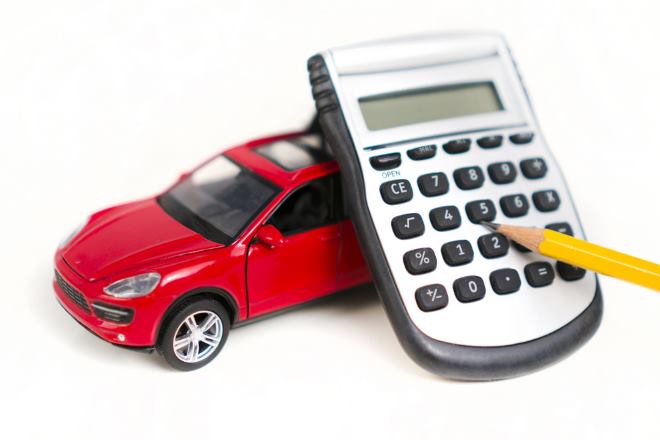Understanding Used Car Financing: A Comprehensive Indian Market Guide
The Indian used car market is experiencing unprecedented growth, with projections indicating an 8-10% expansion in FY26 [1]. As more buyers explore pre-owned vehicles for affordability and value, understanding financing options becomes crucial. Used car financing in India offers multiple pathways, from traditional bank loans to innovative zero down payment schemes, each with distinct eligibility criteria and documentation requirements.

What Are the Used Car Loan Eligibility Criteria in India?
Used car loan eligibility in India varies across lenders but follows standard parameters. Most banks and NBFCs require applicants to be between 21-65 years old with a minimum monthly income of ₹15,000-₹25,000. Employment stability is crucial, with salaried individuals needing at least one year of experience and self-employed applicants requiring two years of business operations.
Vehicle age restrictions typically limit financing to cars not older than 5-7 years at loan maturity. The loan-to-value ratio usually ranges from 80-90% of the vehicle’s current market value. Residency proof, identity verification, and income documentation form the foundation of eligibility assessment.
How Do Zero Down Payment Auto Finance Options Work?
Zero down payment auto finance options eliminate the need for upfront payments, making vehicle ownership more accessible. These schemes are particularly popular among young professionals and first-time car buyers. However, they often come with slightly higher interest rates and stricter eligibility criteria to compensate for increased lender risk.
Some financiers offer 100% funding for certified pre-owned vehicles from authorized dealers. These programs typically require excellent credit scores and comprehensive insurance coverage. The loan amount covers the entire vehicle cost, processing fees, and sometimes additional services like extended warranties.
What Documentation Is Required for Pre-Owned Vehicle Credit?
Pre-owned used vehicle credit documentation includes personal and vehicle-specific papers. Personal documents encompass identity proof (Aadhaar, PAN card), address verification (utility bills, rental agreements), and income evidence (salary slips, ITR, bank statements). Self-employed individuals must provide business registration certificates and financial statements.
Vehicle documentation includes registration certificate, insurance papers, and pollution under control certificate. A valuation report from an approved agency determines the vehicle’s current market worth. Some lenders also require a technical inspection report to assess the vehicle’s mechanical condition and road worthiness.
How Do Indian Second Hand Car Loan Interest Rates Compare?
Indian second hand car loan interest rates comparison reveals significant variations across lenders. Public sector banks typically offer rates between 9.5-13%, while private banks range from 10-15%. NBFCs and specialized auto financiers may charge 12-18%, depending on the applicant’s profile and vehicle specifications.
Interest rates depend on factors like credit score, loan tenure, vehicle age, and down payment amount. Shorter tenures generally attract lower rates, while longer repayment periods increase the cost of borrowing. Seasonal promotions and tie-ups with automobile dealers can provide additional rate benefits.
| Lender Type | Interest Rate Range | Loan Amount | Tenure | Processing Fee |
|---|---|---|---|---|
| Public Sector Banks | 9.5% - 13% | Up to ₹50 lakhs | 1-7 years | 0.5% - 1% |
| Private Banks | 10% - 15% | Up to ₹75 lakhs | 1-7 years | 1% - 2% |
| NBFCs | 12% - 18% | Up to ₹1 crore | 1-8 years | 2% - 3% |
| Digital Lenders | 11% - 16% | Up to ₹25 lakhs | 1-5 years | 1% - 2.5% |
Prices, rates, or cost estimates mentioned in this article are based on the latest available information but may change over time. Independent research is advised before making financial decisions.
What Credit Score Requirements Apply for Used Vehicle Purchase?
Credit score requirements used vehicle purchase typically mandate a minimum CIBIL score of 650-700 for approval. Scores above 750 unlock premium interest rates and faster processing. Applicants with scores between 600-650 may still qualify but face higher rates and stricter terms.
Lenders increasingly rely on credit bureau reports to assess repayment capability. A clean credit history with no defaults or settlements significantly improves approval chances. First-time borrowers without credit history can leverage co-applicants or guarantors to strengthen their applications.
Choosing the Right Financing Option
Selecting appropriate used car financing requires comparing total cost of ownership rather than just interest rates. Factor in processing fees, prepayment charges, and insurance requirements. Consider your repayment capacity and choose tenures that maintain comfortable monthly installments without straining your budget.
Digital lending platforms are revolutionizing used car financing with faster approvals and competitive rates. However, traditional banks offer relationship benefits and flexible terms for existing customers. Evaluate multiple options and negotiate terms based on your financial profile and vehicle choice.
The used car financing landscape in India continues evolving with technological advancement and increased competition. Understanding eligibility criteria, documentation requirements, and comparative interest rates empowers buyers to make informed financing decisions. Whether opting for zero down payment schemes or traditional loans, thorough research and comparison shopping ensure optimal financing terms for your pre-owned vehicle purchase.
Sources
[1] https://www.thehindu.com/business/used-car-volume-likely-to-grow-8-10-in-fy26/article69801693.ece




